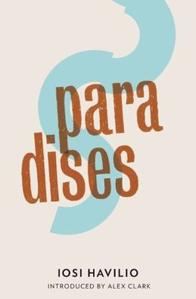

This fascinating narrator is a strangely passive woman unburdened by moral considerations, who casually injects herself with someone else's morphine and steals a baby iguana from the zoo. She's too passive to say no to her daffy friend's plan to steal the jewels of her boyfriend's rich parents. Though coming out of a four-year relationship with a man, all of her bonds now are with women. The novel is crowded with female characters, like Iris, the Romanian babysitter who gets the narrator a job at the zoo; or Tosca, an immense woman who needs an injection of morphine every morning and night.
But most of all, there's Eloisa, the sexually uninhibited young woman first seen in Open Door, a slim, messy tattooed blonde with a pearl stud in her tongue. This potty-mouthed pothead is Havilio's finest creation, and effortlessly dominates the novel. Effervescent, unpredictable Eloisa is able to vault instantly from apathy to rage, when she's not exploding off the page with laughter, shrieking in fury, deceiving, flirting, stealing, exploiting or partying shamelessly.
Havilio's passion lies with the powerless. An inexhaustible stream of eccentric, believable characters, the down-and-out, downtrodden marginal citizens of Buenos Aires, parades through his fiction. The plot is free-form at best, with parties erupting in the street, fistfights breaking out in restaurants and lost old friends appearing out of nowhere. Paradises is packed with quick, colorful sequences: Christmas Eve dinner in a crowded all-you-can-eat, a nightmarish subway journey in the heat, a fresh corpse hurriedly covered on the supermarket floor, a white-haired old man with his accordion singing about loving your neighbors and God.
"This place is hell," says the narrator's party-going best friend, taking in her wretched new living quarters. "Things turned out this way," the narrator replies, and that sums up Havilio's sense of the random momentum of life, the coincidences and unexpected conjunctions that can lead a mother to raise her son among dealers and thugs and still have hope for the future. --Nick DiMartino
Shelf Talker: Havilio's sequel to Open Door brings an unnamed female narrator and her girlfriend back to unpredictable, law-breaking life in a Buenos Aires slum.

